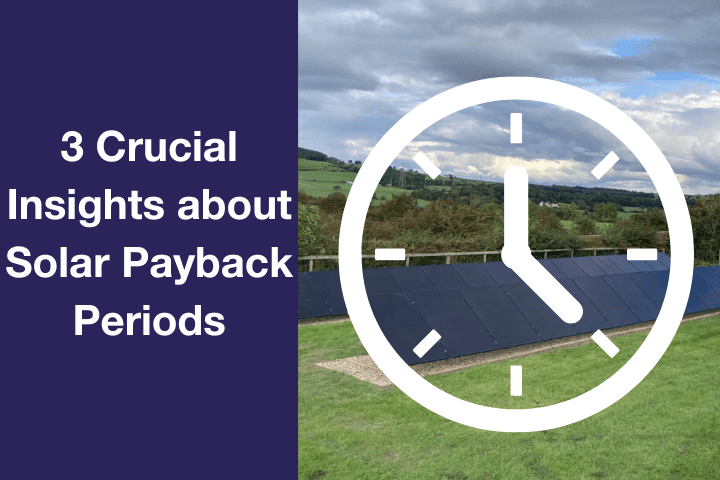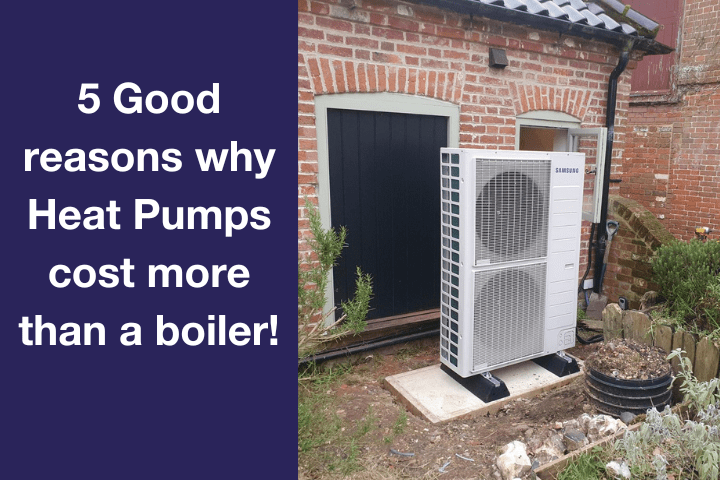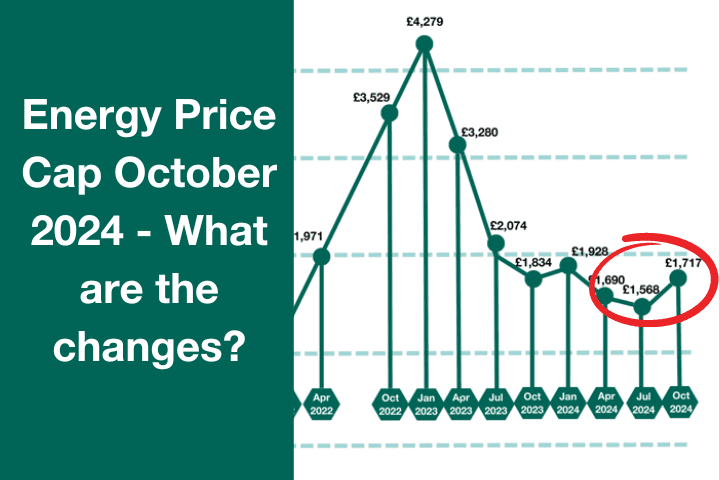Understanding Solar Payback Periods: 3 Crucial Insights

Solar payback periods can seem like an abstract idea. Generally, when we buy something, we don’t expect it to pay us back in the long term. Most things we buy tend to cost us money over their lifetime or dramatically depreciate in value. But that’s not the case when it comes to solar panel installations. If you have ever received a quotation from a solar company or if in the future you receive one of ours, then it will include a projection of your savings (like the image below)

There will be a point on the projection marking your payback period, but what does this mean? In this blog, we’ll explain payback periods and what affects them.
Table of Contents
What Are Solar Payback Periods?
The term “solar payback period” refers to the amount of time it takes for you, the homeowner, to recoup your initial investment in a solar panel installation through savings on your electricity bills. Essentially, it’s the time needed for the energy savings generated by the solar panels to equal the upfront costs of purchasing and installing the system. This metric is crucial as it helps them determine the financial viability and long-term benefits of switching to solar energy for your home.
Insight 1. What Factors Affect Solar Payback Periods?
Several factors can influence the length of the period for solar panels, including:
- Initial Cost of Installation:
The upfront expense of purchasing and installing solar panels can vary greatly depending on the size and type of the system you want or need.
- Electricity Rates:
Higher electricity prices increase the savings from solar energy, shortening the period.
- Incentives and Rebates:
Government incentives, like the Smart Export Guarantee (SEC), can help reduce the initial cost, thus shortening the payback period.
- Solar Panel Efficiency:
More efficient solar panels generate more electricity, speeding up the payback process.
- Location and Sunlight Exposure:
Homes in sunnier regions will generate more solar energy, leading to faster savings.
- Energy Consumption:
Higher household energy consumption can lead to greater savings and a shorter period.
What Are the Solar Panel Payback Periods in the UK Currently?
The average solar payback period in the UK typically ranges between 9 to 12 years. This can vary based on the factors mentioned above. For instance, homes in southern parts of the UK, which receive more sunlight, might notice shorter periods than those in northern regions.
Insight 2. What Factors Could Make Solar Payback Periods Reduce?
Several factors could contribute to shorter solar payback periods in the future:
- Technological Advancements:
Improvements in solar panel technology and efficiency could lead to higher energy production.
- Decreasing Solar Panel Costs:
As the manufacturing costs of solar panels decrease, the initial investment required may also reduce.
- Increase in Electricity Prices:
Rising electricity rates can enhance the savings from solar energy.
- Enhanced Government Incentives:
Introducing more comprehensive government subsidies could also help lower the effective cost of solar panel installations.
What Has Happened to Solar Panel Payback Periods Over Time in the UK?
Over the past decade, the payback periods for solar panels in the UK have generally shortened. This trend is largely due to the falling costs of solar panel installations and the introduction of various government incentives. Additionally, technological advancements have increased the efficiency and lifespan of solar panels, providing better returns on investment.
insight 3: How Does the Change in Electricity Pricing Affect Solar Payback Periods in the UK?
The fluctuation of electricity prices in the UK plays a pivotal role in determining the solar payback periods. Specifically, when electricity prices are high, the savings generated by solar panels are more significant, leading to a shorter payback period. Conversely, lower electricity prices can extend the payback time as the relative savings from solar energy diminish.
The recent energy price crisis has brought this dynamic into sharp focus. (Read our blog on how solar energy was affected by the energy price crisis). Due to the combined impacts of geopolitical tensions, supply chain disruptions, and increased demand, electricity prices in the UK surged to unprecedented levels. Homeowners faced considerably higher utility bills, which enhanced the potential savings from investing in solar panel systems. As a result, many households observed a reduction in their solar payback periods, sometimes by several years, making solar energy a more attractive and financially prudent option when energy prices are high. I
The Energy Price Criss situation emphasised the importance of electricity pricing as a crucial variable in the solar payback equation. With the possibility of future volatility in energy markets, solar panels offer not just a path to sustainability but also a buffer against fluctuating electricity costs. As energy prices still remain high, the financial case for switching to solar becomes increasingly compelling.
What Are the Other Benefits of Solar Panels?
Along with being ‘paid back’ for your investment in a solar installation, there are plenty of other reasons to invest in solar. They include:
- Long-Term Savings:
After the payback period, homeowners enjoy free electricity for the remaining lifespan of the solar panels, which can be 25 years or more.
- Increase in Property Value:
Homes with solar panel installations often have higher property values and can be more attractive to buyers.
- Environmental Benefits:
Solar energy is renewable and reduces the carbon footprint, contributing to reducing your environmental feedback.
- Energy Independence:
Solar panels provide a degree of energy independence, protecting you from fluctuating electricity prices.
In conclusion, understanding solar payback periods is essential for considering solar panel installations. Various factors influence these periods, but solar panels offer substantial long-term benefits even with the initial investment, making them a worthwhile consideration for any home or business.
For more information on how solar panels can benefit you, visit our website and get started on your solar energy journey today!




